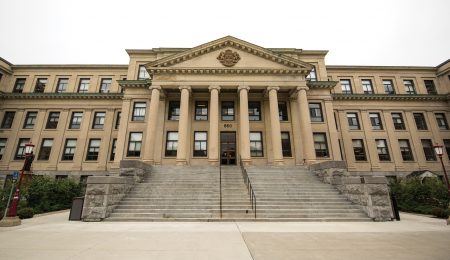When University of Ottawa president Jacques Frémont told the Board of Governors (BOG) that the school came dead last in a Maclean’s ranking of Canadian universities in student satisfaction, all of the board members were shocked—except the members who were students or teachers themselves.
After giving the news that the U of O had done so poorly in student satisfaction, Frémont made a strong statement about how the results were unacceptable, and that he had been hearing horror stories from students about wait times for academic services, mental health services, and more.
He announced concrete measures, saying that vice-president academic and provost David Graham would be putting together a task force with heavy student involvement to solve the problem.
There’s nothing wrong with that response or with taking measures to solve the problem, in fact that’s the right reaction—but it should have happened much sooner.
This is not the first time the BOG has heard about terrible academic wait times, campus mental health services, international student fees, and all the other serious issues facing students at the university. Several board members said that they’ve been hearing talks of improving student satisfaction for years, with nothing getting done, and definitely no task force. So why did it take an external ranking to get this strong reaction from the university?
There are several students and professors on the BOG who discuss student concerns, along with plenty of other ways the administration can keep up with student life on campus, like the meetings with students Frémont told the board about.
If the university is able to learn about student life on its own, it certainly shouldn’t be leaving it up to outside ratings to connect the dots to find a serious problem with student satisfaction, especially when all the pieces have been in front of them for years.
In fact, voicing the issue in terms of rankings is absolutely the wrong way to address the problem in the first place. A ranking may or may not capture the true extent of problems at a university. There could very well be a delay before the problems start to show in the official rankings, during which time the university could just say “our rankings are fine, so there’s not problem.”
An even bigger issue is that rankings don’t deal in absolute terms. A university could be a bad environment for students but still rank high if other schools are even worse.
These are just two more reasons why it’s essential for the university to improve its responses based on observed symptoms at the university, because a ranking may come too late.
Now, it’s important to note that not all of the work the BOG does sees the light of day at the monthly meetings. Committees could very well have been working on solutions to these problems beforehand.
But the ostensible reason the university made such a strong, public response to the ranking was that it was deemed to be a serious problem. If it was a serious problem before, the strong response should have been made when the board felt it necessary to start a behind-the-scenes procedure.
Hopefully the drop in the U of O’s ranking does spur positive change. But if we’re really going to maintain a high standard in student experience on campus, the highest level of our university’s governance needs to react strongly when they get news of serious problems from their own students and professors, and not wait until the rest of the country sees how bad the problem is.





